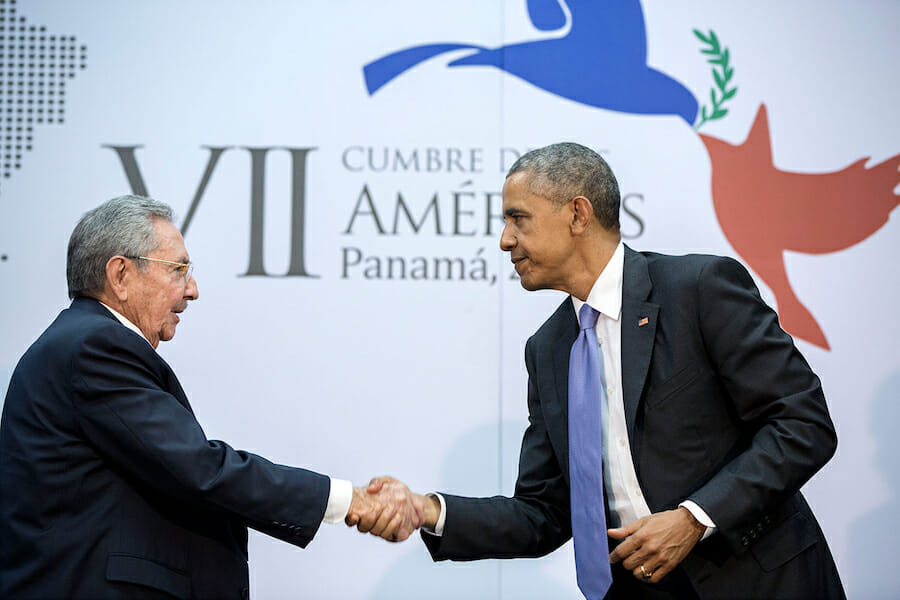
Politics
It’s Time to End the Embargo
The United States and Cuba have been engaged in a diplomatic stalemate since the 1960s when the U.S. imposed an embargo on Cuba to encourage free markets and democratic governance. Over a half-century later, President Barack Obama has begun the process of normalizing relations with the island nation, and this is the first step toward ending the embargo.
For the first time, the political environment in both countries is conducive for better relations and ending this archaic policy. It is imperative that the United States lift the outdated and ineffective embargo if there is any chance of fully normalizing relations with Cuba.
The embargo is an outdated policy, coming into effect during the beginning stages of the Cold War, when the United States was at its height of fear of communism, especially in the Western Hemisphere. A “product of the Cold War,” rooted in an antiquated obsession with the spread of communism, the policy does not belong in the twenty-first century.
Similarly, Raul Castro, after taking over the presidency in 2008 from his brother Fidel, implemented economic reforms in his first steps toward adjusting the 21st century global order. He recognized that liberalizing the controlled economy was necessary to prevent the Cuban economy from falling into further despair.
Now, the United States must create policies that are relevant to the new century; it has been able to move beyond Cold War fears and establish normal ties with countries just as or more authoritarian than Cuba. If those relationships were able to move successfully into the twenty-first century, then it is time for America and Cuba to do the same.
Additionally, the embargo has blemished the United States’ image around the world and has been especially damaging to its relations in the Western Hemisphere. The United States’ strongest allies in the region, such as Mexico and Colombia, criticize this ill-fated policy. More broadly, outside the Western Hemisphere nearly all of Washington’s allies disagree on this issue; even the United Nations concurs that the embargo is inappropriate. “Washington has succeeded only in isolating itself in its own hemisphere,” and removing the embargo would be the first step to improving its reputation and some of its most important relationships.
Further, the embargo is ineffective; it has actually worked at cross-purposes to the United States’ goals in Cuba. The United States maintains this antiquated policy, originally seeking to depose Fidel Castro, for fear that Cuba is incapable of any reforms. The embargo, however, has failed to “dislodge” Castro, helped establish empathy and support for Cuba abroad, and only served to justify authoritarianism. Cuba has made some liberal reforms to its economy, but only for fear of Venezuela ending economic aid. Further, the United States’ allies in Europe, Japan and Canada still do business with Cuba, rendering the embargo effectively “toothless.”
Finally, the embargo has only bolstered Cuba’s international position, making Western hemisphere neighbors more confrontational towards the U.S. and friendlier to Cuba. In other words, it has only exacerbated the situation by actually discouraging democratic governance and free market economics in Cuba.
President Obama took the correct action by starting the process of opening an embassy and beginning the establishment of normal relations. The last impediment (releasing sub-contractor Alan Gross) was removed and it is now time to engage Cuba. The pace of reforms has been slower than hoped and there are still massive human rights problems, but the concessions and changes made by Cuba indicate that the country desires a new relationship with the United States. Thus, it is time for the United States to make solid political moves toward building a normal relationship with its neighbor. Lifting the embargo is the first step toward achieving such a policy goal.

